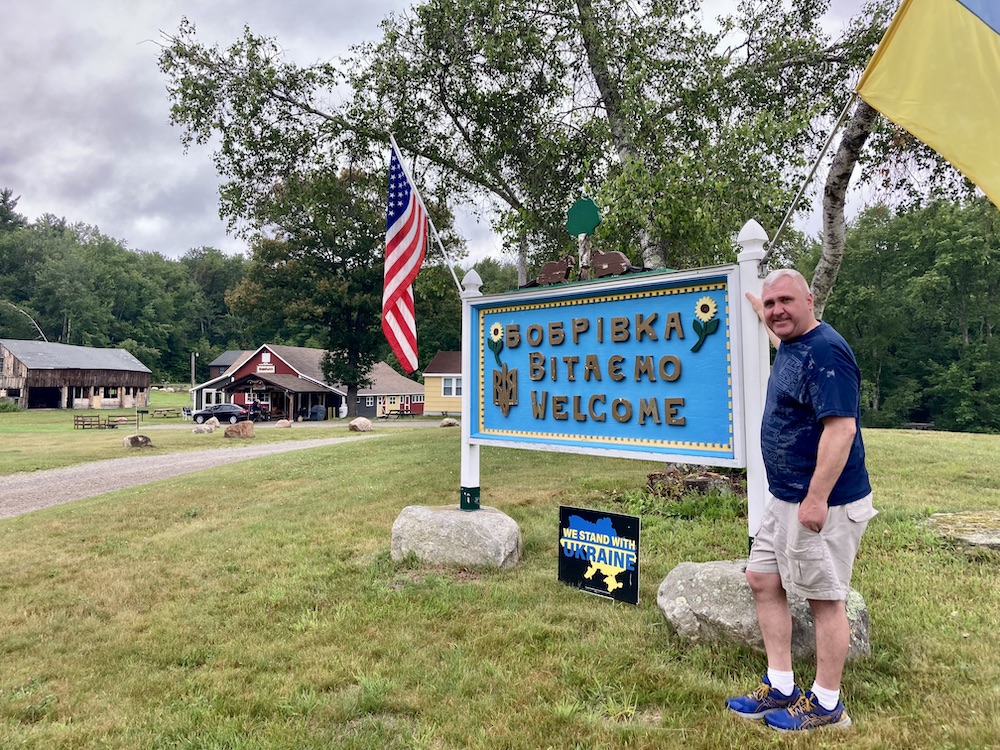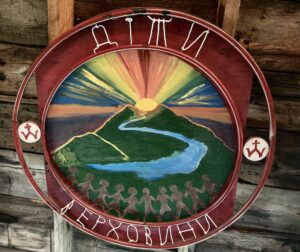Camp Bobriwka Has Been Promoting Ukrainian Culture for Over 65 Years
A Ukrainian-American Haven in the Woods
By David Beers
Up in the remote woods of North Colebrook is a haven for Ukrainian-American culture called Camp Bobriwka. Bobriwka is the Ukrainian word for “land of the beaver.” The camp was established in 1955 by World War II-displaced Ukrainian refugees to promote Ukrainian cultural activities and fellowship. Since then, subsequent generations of Ukrainian-Americans in Connecticut have continued supporting and running the camp.
The camp campus includes both seasonal and year-round lodging in a variety of cabins. The camp has a bath house, dining hall, outdoor stage, fire pit, RV camping, volleyball court and an outdoor amphitheater. A walk down the hill brings you to a swimming pond, chapel and a view of the vast beaver marsh. There are also six miles of trails on 340 mostly wooded acres owned by the camp.

The dining hall is the social center of the camp. It is a stunning, large wooden post-and-beam open space with a vaulted ceiling. There are long family-style wooden dining tables, a kitchen, a stage and plenty of windows. All the wall space is covered in a fascinating variety of summer camp plaques. Each year the campers create a plaque based on a chosen theme, all of which are quite artistically done.
Different groups rent all or part of the facilities throughout the year. A good part of the summer sees the camp devoted to Ukrainian-American youth summer camping weeks. This includes a week of Ukrainian dancing and a week of Bandura playing. The Bandura is a Ukrainian plucked-string folk instrument. Each week finishes with a performance. These workshops attract campers from all over the country.
Other summer camps include the Ukrainian Scouts, called Plast, and the Polish scouts. Additional groups using the camp include college outing clubs, astronomy clubs, weddings and other celebrations, the Ukrainian-American Youth Association of Hartford, and the Ukrainian Global Scholars. The Global Scholars are Ukrainians studying abroad who have agreed to return to Ukraine to help rebuild.
While not an official nonprofit, the camp runs like one. There is no paid staff. The camp is run by volunteers, and it reinvests its revenue in its facilities and in various Ukrainia-associated charities.
Stephan Maksymiuk’s family has been active in the camp leadership since its inception. Explaining the camp’s purpose and history, Maksymiuk talked about how the camp celebrated the independence of Ukraine from the USSR in 1991. After 1991, Ukrainian Americans began visiting Ukraine, and Ukrainians began visiting the camp. The visitors included Kateryna Yushchenko, somewhat of a celebrity in recent Ukrainian history. Yushchenko was the first lady of Ukraine from 2005 to 2010. Her husband, Viktor, was the famous leader of Ukraine’s Orange Revolution, which erupted after a 2004 presidential election that was marred by charges of corruption and fraud. He is also well known for a dioxin poisoning attempt on his life during the 2004 campaign.

At Camp Bobriwka, going back to generations of Russian oppression of Ukraine is not an option. Camp Bobriwka’s devotion to Ukrainian-American fellowship and its strong support of Ukraine is palpable to anyone who visits the camp.
